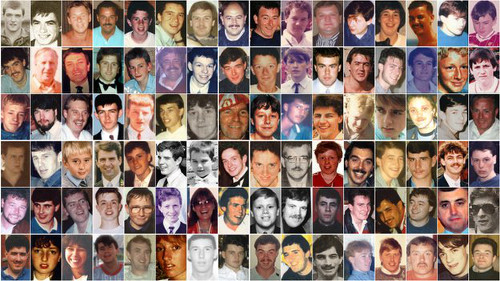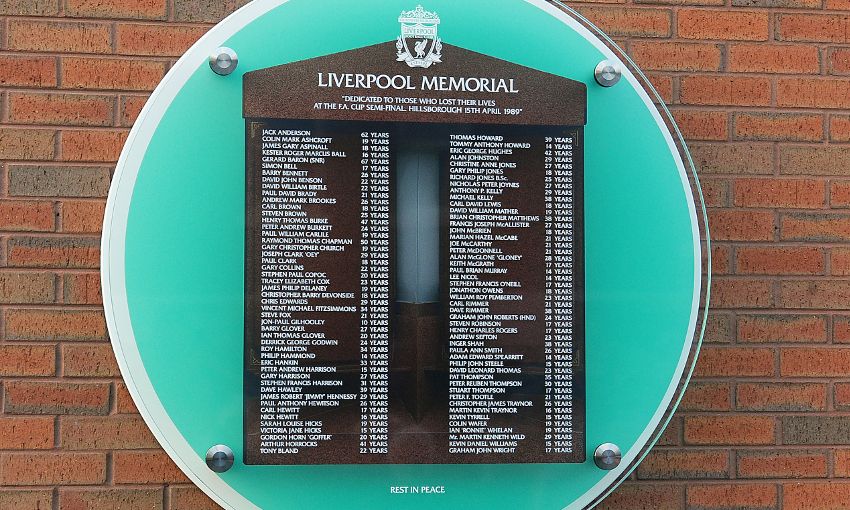Hillsborough inquests - February 22
The Hillsborough inquests commenced on March 31, 2014 and are the subject of reporting restrictions that have been imposed by the Attorney General's office. Liverpool Football Club is respectful of these restrictions and will therefore only be making available updates from other media channels for the duration of the inquest.

The report below - and the witness testimony contained within it - does not necessarily reflect the views of Liverpool FC. Please be aware that the reports on these pages will contain evidence about the day of the disaster which may be distressing.
To view archive reports from each day of the inquest hearings, click here.
Courtesy of the Liverpool Echo - February 22
The jury in the Hillsborough inquests was asked whether the opening of an exit gate to allow fans into the ground was part of a “police plan”.
Coroner Sir John Goldring continued summing up the evidence to the court, in Birchwood Park, Warrington, as the inquests resumed following a half-term break.
He reminded the jury of evidence about the opening of exit gate C at the Leppings Lane end of the stadium ahead of the semi-final on April 15, 1989.
The jury heard the gate had been opened twice - initially to eject a fan at 2.48pm, when about 150 fans went in, and then at 2.52pm.
Steward Ian Marsh, who had problems with his long term memory when he appeared at the inquests, was shown on footage appearing to open the mechanism to unlock the gate at 2.52pm, but said he would not have done so without getting authority from the police.
Fan Kenneth Rawlinson had told the inquests that he and his friend Terry Higgins, along with an older man who was struggling to breathe, were pulled from the crowd outside the turnstiles by Sergeant John Morgan, who told them to enter the ground through exit gate C.
But Mr Rawlinson said when they got to the gate they were refused entry so they returned to Mr Morgan, who went back to the gate with them and spoke to officers outside.
He said Mr Morgan then spoke to the steward on the other side of the gate and it was then opened for them to enter.
But, the court heard that when Mr Morgan gave evidence he had no recollection of asking for the gate to be opened.
Sir John said: “He did not knock on the gate. He did not look through the window of the gate.
“He thought when he was by the gate he was wondering what to do next.
“He could not remember where he was when at 2.52pm the gate was opened.”
A still of footage from 2.52pm, just before the gate was opened, showed Mr Morgan near the gate.
A mounted officer was shown with his hand towards his chest.
When Mr Rawlinson was shown the picture he agreed that the mounted officer might be bending his ear down to hear a transmission on the radio.
Footage of the gate opening showed a police officer, who the coroner said may have been Mr Morgan, entering first, followed by Mr Rawlinson and about 10 fans.
A police officer then opened the other side of the gate and a large number of fans went into the ground.
The coroner said: “In short, members of the jury, a mounted officer appears to be listening to his radio.
“Gate C is closed at the time.
“Gate C is opened.
“A police officer goes in.
“Mr Rawlinson and his group follow.
“The police open the gate fully.
“The police direct fans through the open gate.
“Was that part of a police plan?”
A radio transcript recording transmissions in the control box included the message “Open the gates, open the gates at the Leppings...” at 2.51pm, a minute before the gate was opened.
The court also heard about amendments made to Mr Morgan’s statement.
Mr Morgan described going onto the pitch after a call for all officers to attend.
In his original statement he said there was “panic and utter chaos”.
He said: “There did not appear to be any sort of organised police effort. Many officers were working on their own initiative.”
Following a request from police solicitor Peter Metcalf to review that part of the statement, it was changed to read: “The situation was very confused, but many officers responded individually to identified needs, rendering assistance wherever they could.”
Mr Morgan said he did not think he had been made aware of the amendments and thought his statement had been “sanitised”.
Sir John said: “He said he was shocked and stunned when he learned that it had been.”
Click here for a full transcript from February 22.



